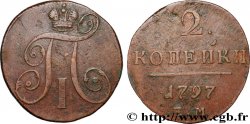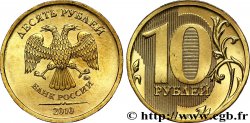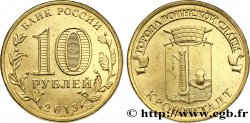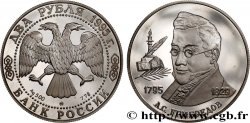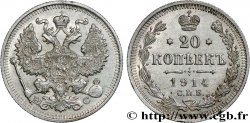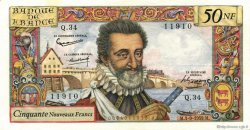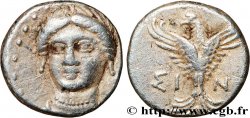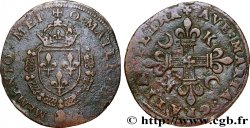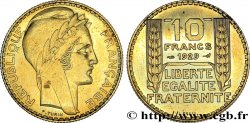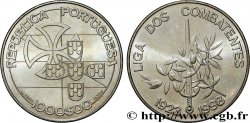fwo_469739 - RUSSIA 25 Kopecks 1847 Saint-Petersbourg
non disponibile.
Articolo venduto sul nostro negozio (2020)
Prezzo : 100.00 €
Articolo venduto sul nostro negozio (2020)
Prezzo : 100.00 €
Tipo : 25 Kopecks
Data: 1847
Nome della officina / città: Saint-Petersbourg
Quantità coniata : 4824000
Metallo : argento
Titolo in millesimi : 868 ‰
Diametro : 24 mm
Asse di coniazione : 12 h.
Peso : 5,15 g.
Orlo : décorée
N° nelle opere di riferimento :
Diritto
Descrittivo diritto : Aigle bicéphale héraldique couronné.
Rovescio
Commento
Nicolas Ier (7/07/1796-2/03/1855), second fils de Paul Ier, est le frère d'Alexandre Ier et du grand-duc Constantin. À la mort de son frère Alexandre Ier, le 1er décembre 1825, et après le renoncement de son frère Constantin, il devient tsar de toutes les Russies et commence par réprimer le mouvement libéral des Décembristes puis le soulèvement de Pologne en 1831. Après avoir favorisé la libération de la Grèce, il se pose comme un défenseur des Slaves et s'oppose aux Turcs. Il trouve sur sa route les Anglais et les Français. Il meurt avant la défaite de la guerre de Crimée.
Nicholas I (7/07/1796-2/03/1855), second son of Paul I, is the brother of Alexander I and Grand Duke Constantin. On the death of his brother Alexander I, on December 1, 1825, and after the renunciation of his brother Constantine, he became Tsar of all the Russias and began by repressing the liberal movement of the Decembrists and then the uprising in Poland in 1831. After favoring the liberation of Greece, he poses as a defender of the Slavs and opposes the Turks. He finds on his way the English and the French. He died before the defeat of the Crimean War
Nicholas I (7/07/1796-2/03/1855), second son of Paul I, is the brother of Alexander I and Grand Duke Constantin. On the death of his brother Alexander I, on December 1, 1825, and after the renunciation of his brother Constantine, he became Tsar of all the Russias and began by repressing the liberal movement of the Decembrists and then the uprising in Poland in 1831. After favoring the liberation of Greece, he poses as a defender of the Slavs and opposes the Turks. He finds on his way the English and the French. He died before the defeat of the Crimean War








 Segnalare un errore
Segnalare un errore Stampate la pagina
Stampate la pagina Condividi mia selezione
Condividi mia selezione Fai una domanda
Fai una domanda Consegnare / vendere
Consegnare / vendere
 Descrittivo
Descrittivo